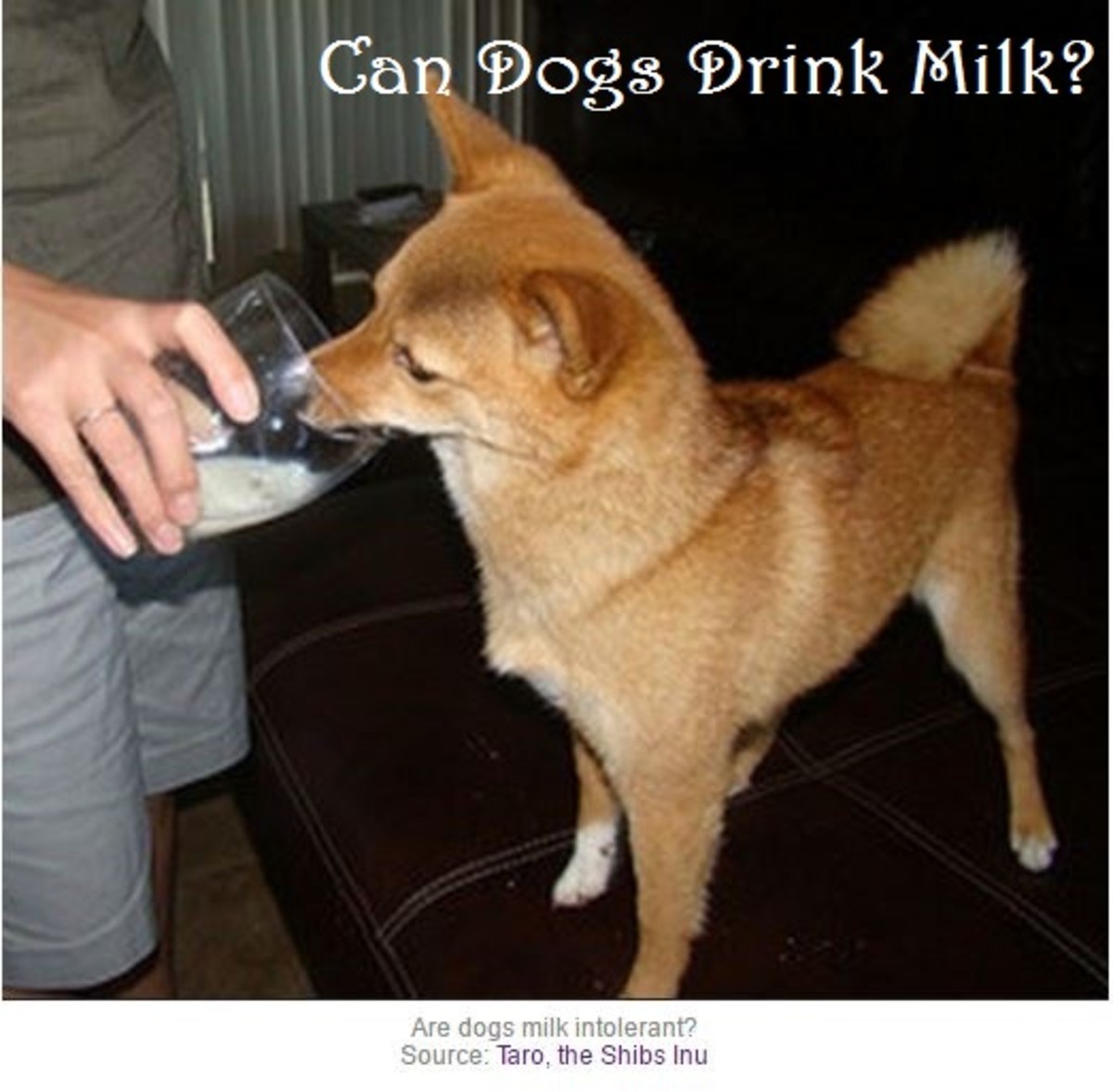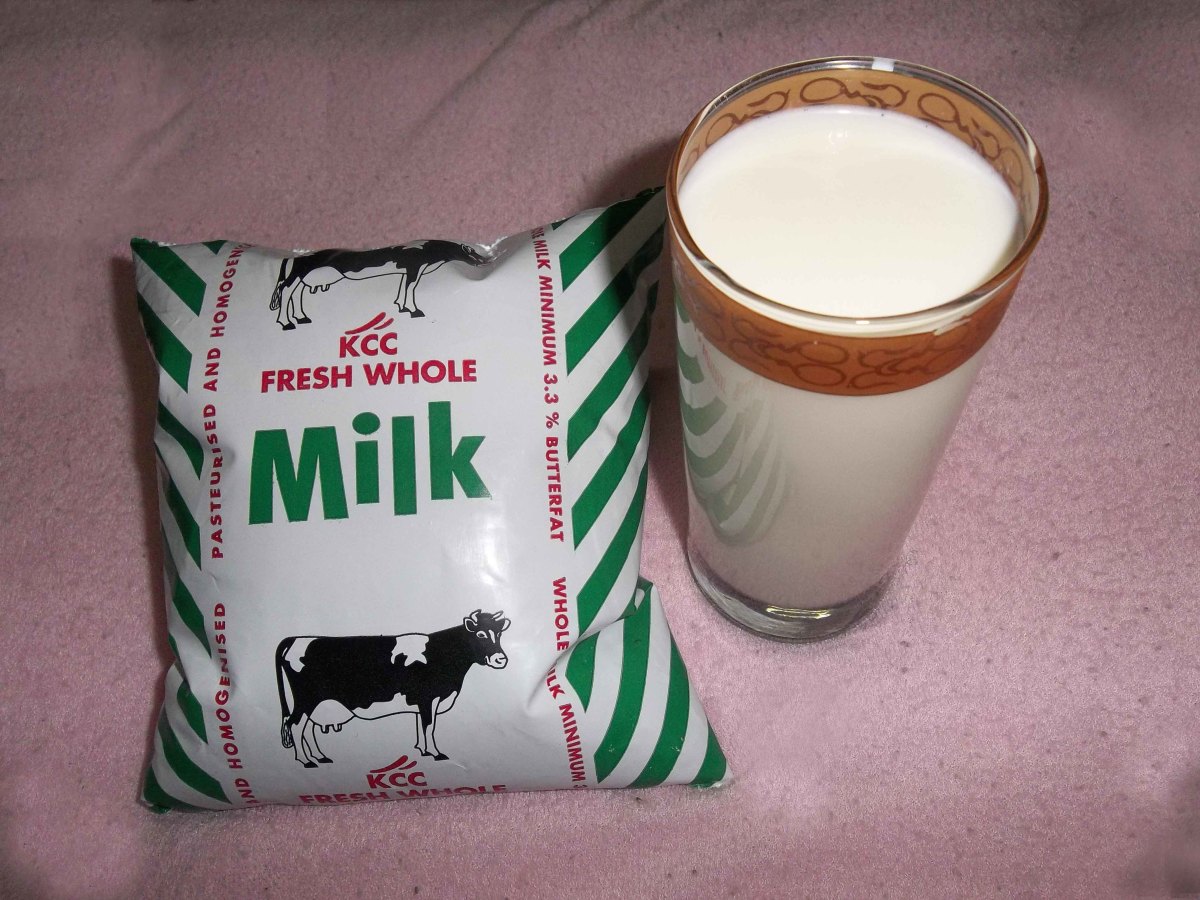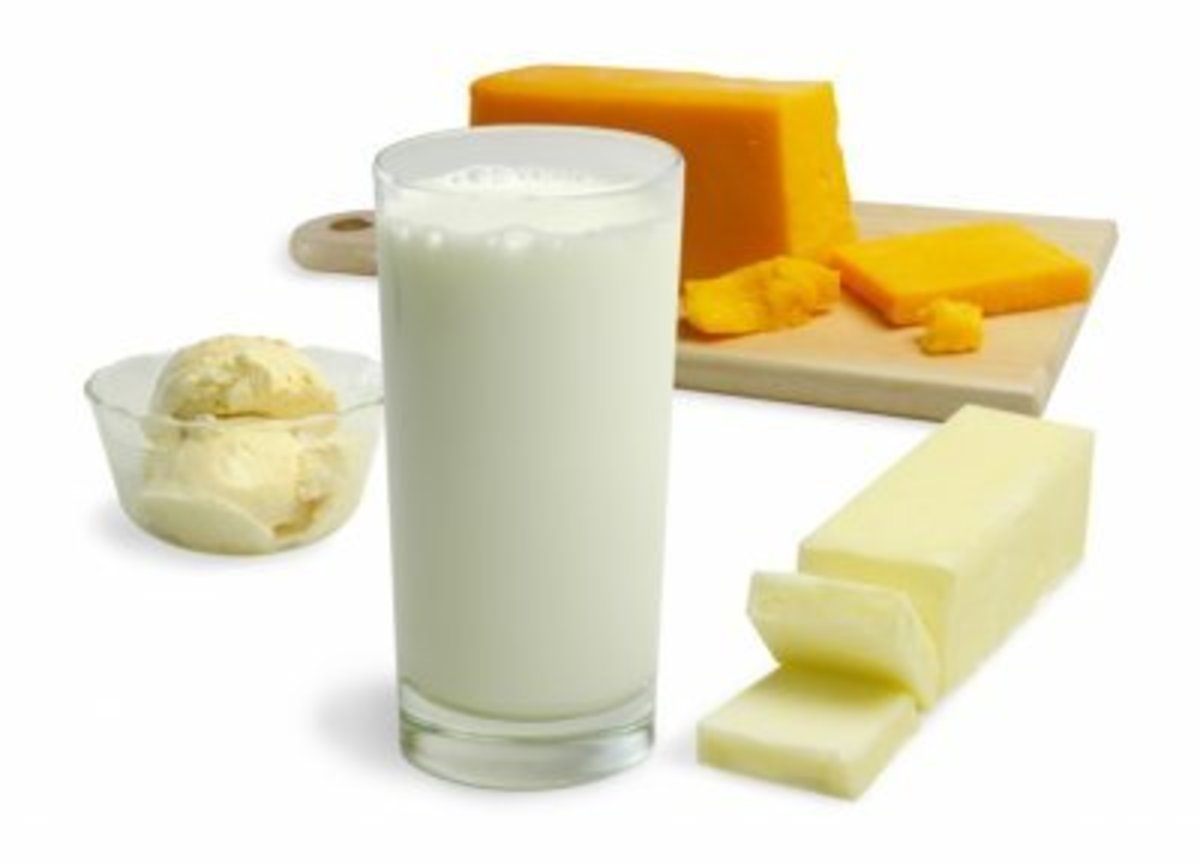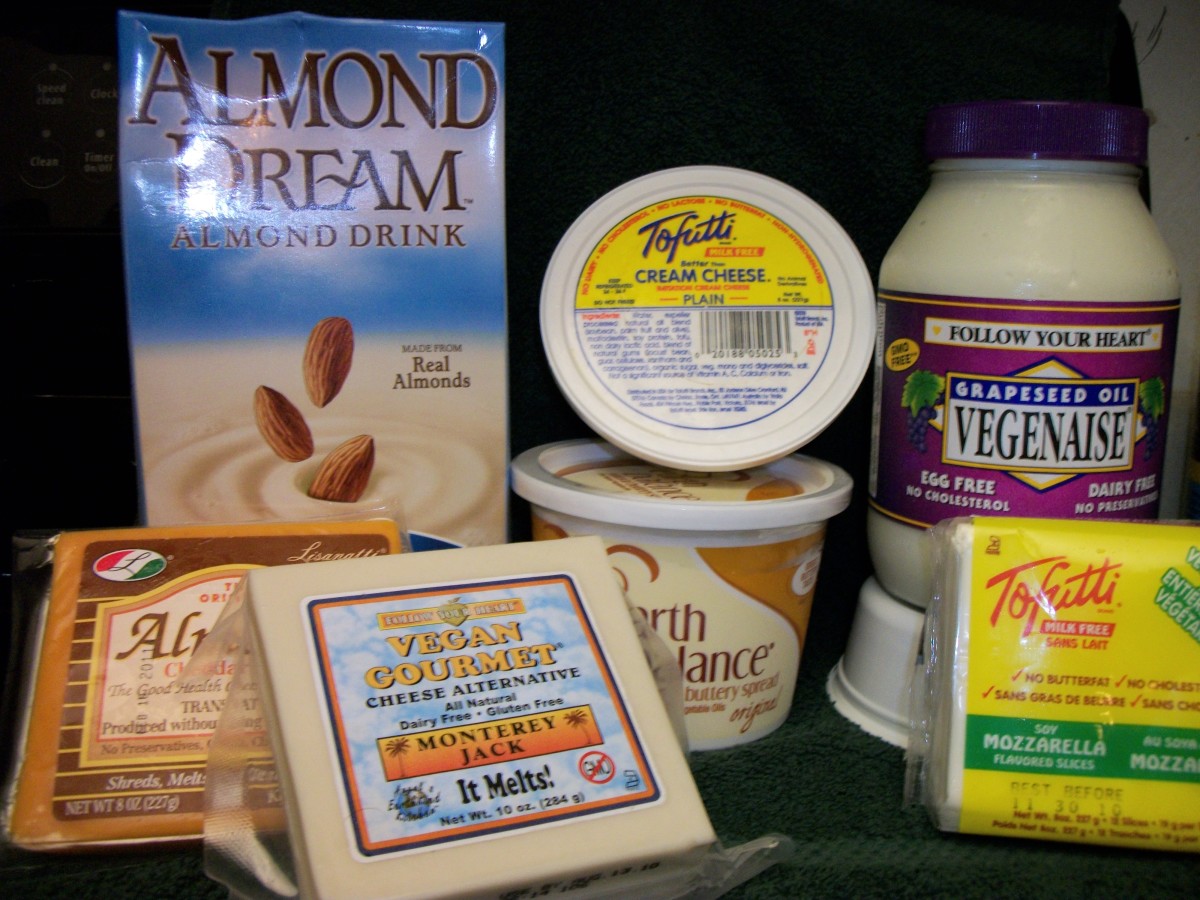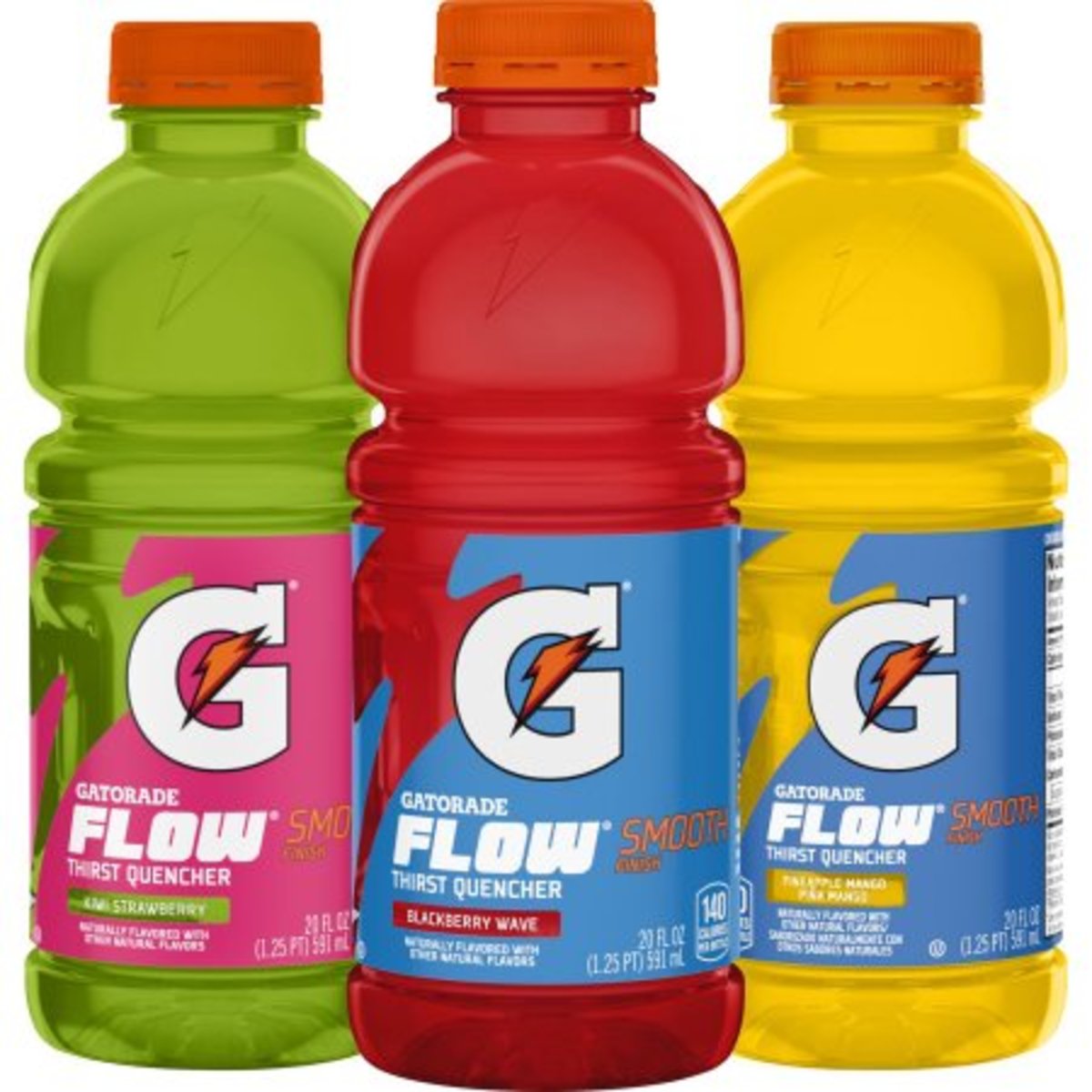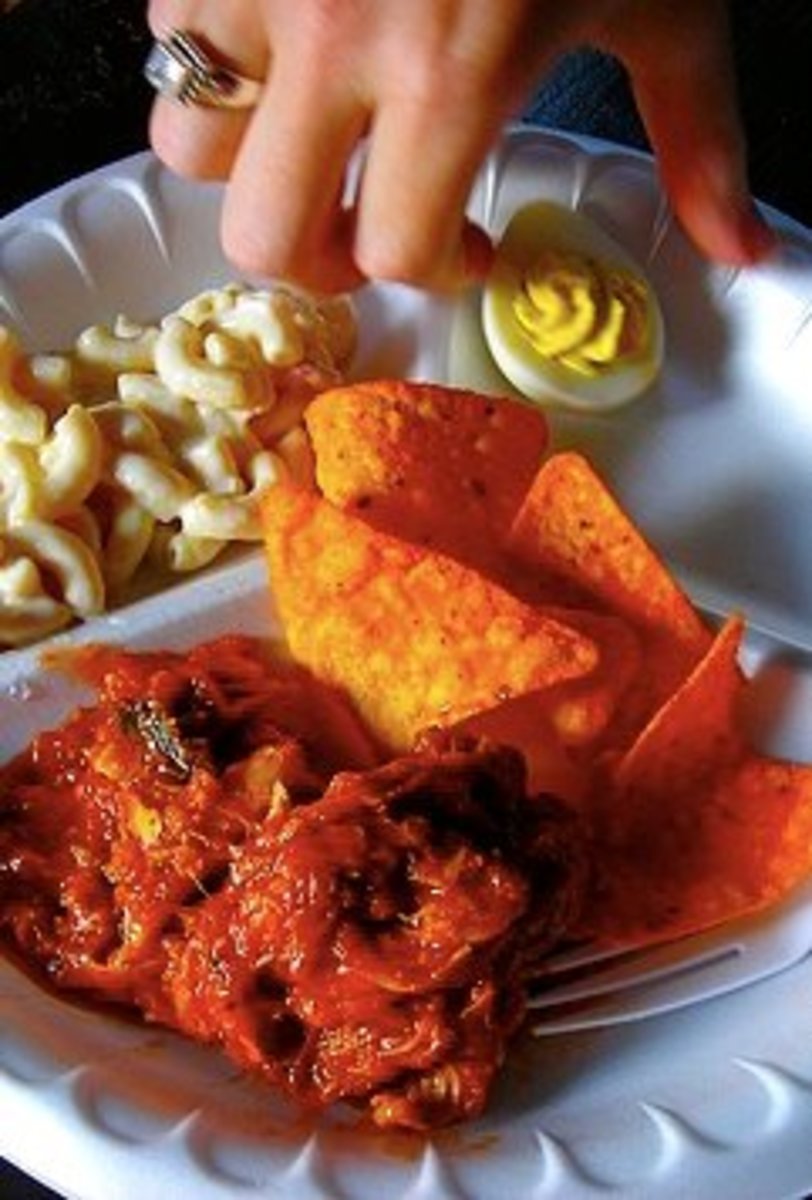The Matter of Milk
- What No Milk??
There has been many articles and websites for and against the use of milk in our society today. For me it is a very serious decision on if I drink Milk or not. For othere ther are allergic reactions and...
- Your baby absolutely has a dairy allergy or sensitivity.
Well when addressing this topic the first thing I feel compelled to say is that humans are not meant to drink cow's milk. Bottom line it is bad for us. Everything that you have heard/read about milk is...
- Dangers of Soy in Children's Diets
Many people have been led to believe that soy products are not only heallthy for children, but that they are healthier than dairy products from animal origins such as cows' and goats' milk. Soy products are... - http://hubpages.com/hub/Babieschildren-and-Milk
We have been asked many times about when we switched our daughter to regular milk from the nursing milk. The answer for us was simple we have never given her regular milk. Yes, I know there are commercials all...
There has been a lot in the nutritional literature lately about milk. Even some of the writers on hubpages have entered into the debate. Some have suggested that children should never be given milk. Others have said that children should never be given soy as a substitute for milk. Some have stated that we can all do without milk, since there are other sources of calcium and other sources of fat. I have provided links to many of these articles, so you can read them for yourself.
I am not much of a milk drinker myself. The story goes that when my mother weaned me of her breast milk, she offered me the bottle, instead. I don't like substitutes. I am very suspicious when someone tries to pass off one thing as something else. I rejected the bottle as a poor substitute for my mother's breast. I also pretty much rejected milk as a beverage. I use milk in my cereal as a sort of condiment, though I don't drink what's leftover in the bowl after the cereal is gone. I like cheese, and the only reason I don't eat butter is that I've stopped eating bread. Milk, in and of itself, is not a big factor in my diet. However, I am not anti-milk, and the current nutritional trend of completely rejecting milk has me curious.
What is behind such a strong reaction, by the same people who used to tout milk as the most nutritious of substances only a couple of decades ago? Why do Americans, in particular, have such strong feelings for or against milk? And why are there suddenly so many people who are lactose intolerant? How did that come about? Twenty years ago, I never even heard of such a thing. There were people who liked milk and people who didn't, but intolerance?That's a pretty strong word.
And what's more, did you know that people are now saying that milk is bad for cats? Have the cats heard about this?
Determined to get to the bottom of this mystery, I decided to do some research.
Holstein Cows -- Milk Producers
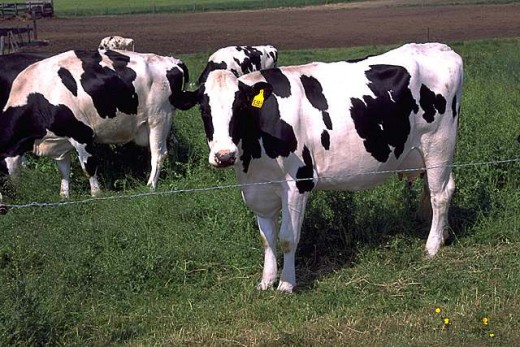
Milk and Honey
"Milk and honey are the only articles of diet whose sole function in nature is food. It is not surprising, therefore, that the nutritional value of milk is high." This is a quote from the article on milk consumption whose link is provided to the right. When we say that the nutritional value of milk is high, we mean a number of different things: (1) milk is a calorie dense food, so just a little of it provides enough to eat, as opposed to a food like lettuce or garden greens. (2) Milk contains most of the types of nutrients that we need to live: fat, protein and carbohydrates, as well as calcium and vitamins A, D, E and K. (3) If you had only milk to consume, you would not starve. This is not true of most foods.
Having said that, I don't know of any human being above the age of five who would want to live only on milk. Most people enjoy variety in their diet. While someone living only on milk would not starve, he might still experience some serious nutritional deficits. For instance, there's not any vitamin C or fiber in milk, and in order to live healthy lives, we need these nutrients as well.
It's nice to have options. Milk and dairy products are good choices, but they are not the only choices we have, and it is also very easy to get all the nutrients found in milk by eating a variety of other foods. There are people for whom milk is not an option, and they manage to get by just fine without it.
Lactose
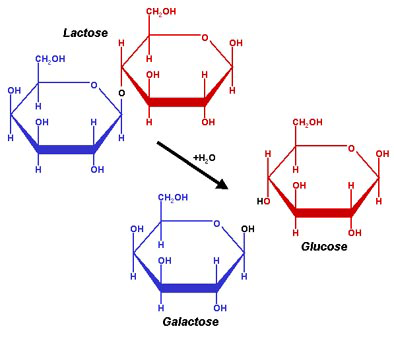
Lactose Intolerance
According to the wikipedia article whose link appears above the picture of the Holstein cows, milk is an emulsion of fat globules in a water-based liquid.So basically, it's fat floating in water. Only unlike most fat and water mixes, it stays even.Each fat globule is surrounded by a protein membrane that keeps it from breaking up. Inside the fluid part of the milk are casein protein "micelles": groups of several thousand protein molecules that are bound together by calcium phosphate strands.About forty percent of the calories in milk come from the carbohydrate lactose. Lactose is made up of two simple sugars, glucose and galactose.
People who are said to be "lactose intolerant" are unable to digest lactose. They don't have enough of the enzyme lactase which is found in small intestine and helps to break up lactose into its component sugars, glucose and galactose.
Common symptoms of lactose intolerance are nausea, cramping, bloating, gas and diarrhea occurring within thirty minutes to two hours of milk consumption.
Healthy normal infants start out with reasonable amounts of lactase at birth. Lactase production diminishes after age two, but most people don't notice any deficiency until they are much older, if ever. A primary lactase deficiency is one unaccompanied by other disease. There is also such a thing as secondary lactase deficiency, which come about as a result of injury to the GI tract or through disease. Secondary lactase deficiency is a symptom of certain gastro-intestinal diseases, like celiac disease, IBD, and Crohn's disease.
There are genetic factors in the predisposition for developing a primary lactase deficiency. Scientists speculate that lactose tolerance is the innovation and that intolerance is the natural state of humans prior to the domestication of milk producing ruminants about 10,000 years ago. I will get back to this point later.
In addition to lactose intolerance, there is also a rare form of milk allergy due to the inability to process casein.
Casein Free Diet for Some Autistics
- Diet and Autism: Myths and miracles
Autism Spectrum Disorder is a broad spectrum of disorders, hence the use of the word "spectrum" in its title. Autism is becoming more understood nowadays by the public, due in part to publicity by celebrities...
The Casein Free Diet
Some infants and children who suffer from low-functioning autism have been cured simply by removing gluten and casein from their diets. A gluten free/casein free diet is one that totally eliminates milk, due to the protein casein. In those individuals, the inability ot properly metabolize either gluten or casein produces a morphine like substance that sedates them and inhibits normal cognitive development. Such children, once on the diet, suddenly gain the ability to interact normally with others and to have normal language development.
For these children and their families, the elimination of milk from the diet (as well as all other foods with either gluten or casein in them) is a very small price to pay for a complete cure.
However, most forms of autism have nothing to do with casein, and a milk free diet does nothing to help most people with an autistic spectrum disorder. This is because autism is a syndrome whose similar symptoms can be brought about by a wide range of causes.
Genetic Research on the Causes of Lactose Tolerance
Lactose intolerance seems to be on the rise, and it has recently become quite common to find the cause for this under discussion. For some reason this has led to widespread condemnation of milk in general. The most popular form of this trend takes the following line of attack: milk is a product intended by nature to be consumed by helpless infants. Mammals produce milk for their own young. Milk is not intended for the young of another animal or for adult members of the species.
Extreme versions of this position maintain that nobody over the age of two should drink milk, and no animal, including humans, should drink the milk of another animal. To support this position, advocates point out that no animal in the wild drinks any milk other than that produced by its own mother, and even that only when it is an infant.
Okay, so that means that Romulus and Remus were probably in mortal danger of dying of lactose intolerance when that She-Wolf suckled them!
But, seriously, what is the scientific evidence? Researchers theorize that "lasctase persistence", meaning the presence of the enzyme lactase in the gut after a child is weaned, is a relatively new trait in adult humans.
In an article by Edward Hollox, in The European Journal of Human Genetics "Genetics of Lactase persistence; fresh lessons in the history of milk drinking(2005) 13, 267-269, the following rationale is given: "In humans, epidemiological analysis has shown that the cultural development of dairying preceded selection for lactase persistence." In other words, first we started drinking milk, and only later we began to tolerate it. How realistic a scenario is that?
Now if he had said that first we began to herd ruminants for meat, and later we gradually started drinking their milk, then it might have made a certain amount of sense that there would have been a selective advantage to being able to tolerate milk as well as eat meat. But, according to Hollox, the development of dairying came first, and then there was a genetic selection for lactase persistence. This would mean that generations of humans would have milked goats and cattle and other milk givers, drinking the milk and getting sick for hundreds and maybe thousands of years, before finally some of their descendants could stomach it? Why would they keep drinking it, if it made them sick? Isn't it more likely that people discovered that milk was good to drink, and then they developed dairying? In which case, lactase persistence must have preceded dairying.
According to Hollox, a genetic mutation accounting for persistence of the enzyme lactase in adult Europeans has been identified, and another, separate genetic mutation allowing for lactase persistence is found among Africans.
Asians are not mentioned. But it was in Asia, in Mesopotamia, the cradle of civilization, where wide-scale agriculture was developed about 10,000 years ago. At that time, Europeans were still savages.
Historical Evidence on Milk Consumption
Canaan is described in the Old Testament as the land of milk and honey. This was supposed to be a good thing. In ancient writings milk is always spoken of highly. It was a calorie dense food, and the ancients appreciated it as such.
In the book of Judges, the general of the Canaanite army, Sisra, fleeing from the onslought of Barak, found shelter in the tent of Ya'el, the wife of Hever the Kenite. She offered him milk and a place to sleep. Later, she drove a stake through his skull. I suppose we could argue that giving him milk was part of Ya'el's overall plan to kill Sisra. However, that's not how it was intended. He asked for water. She gave him milk. She is praised for her generosity. She was a good hostess, up until the point when she rammed a tent stake through his skull. (Judges 4:19-21).
This story is told twice in succeeding chapters of the Book of Judges: once in prose and a second time in poetry. In the poetic version, she also offered him butter. (Judges :25).
In the Baghavad Gita, ghi, or clarified butter, is seen as the utmost in luxury foods, fit for the gods, but undoubtedly consumed by men, too.
Did any of these people suffer from the inability to digest milk or dairy products? There is no indication that they did.
Leprosy and epilepsy are mentioned in the Bible. Lactose intolerance is not.
Do Snakes Drink Milk?
Comparative Evidence on Milk Consumption
We probably all have experiences from our own life, or stories from our grandparents' era, that bely some of the current claims about milk. For instance, it's suggested that we become lactose intolerant over time, but that we come into the world as infants completely able to digest milk. However, we all know that you can't give a newborn kitten or a newborn human baby straight cow's milk. They can't digest it. That's why baby formula had to be carefully developed. Prior to its invention, goat's milk was used for infants who had no mother to suckle them, if a wet nurse could not be found.
A baby kitten will die if fed on cow's milk, but an adult cat can drink it. A human newborn can't be given cow's milk, but an older child or adult can. The problem with cow's milk thoughout history was not that the enzyme lactase was present in infancy and disappeared as we matured. The problem was that babies couldn't tolerate cow's milk, but as soon as they were able to transition to solids, all animals, including humans, could drink cow's milk in addition to eating other foods. When dairying was first introduced into our culture, it was not in order to feed babies. It was for adults.
Then there is the argument that all other animals besides humans don't drink milk beyond infancy. That's not true. My dog Teyman drinks milk. Bow, my chimpanzee son, drinks milk. If lactase persistence were a genetic innovation selected for by a dairy culture that has lasted 10,000 years, how would you account for that?
Why don't other adult mammals drink milk in the wild? It's not because of the inability to digest it. It's because other animals haven't domesticated cows! If you give them milk, they will drink it.
In India, today, many people still believe that snakes drink milk. Snake charmers claim that this is what they feed their snakes. I've also seen the argument confidently made that this can't possibly be true, because snakes are reptiles, and only mammals drink milk.
I don't know whether snakes drink milk. I do know that the argument that they could not drink milk because they are not mammals is completely unconvincing. We are not insects, and yet we eat honey!
The Evolution of the Mammary Gland
All flesh is kin. All animals on this planet are related. Life emerged only once. The building blocks of life are the same, regardless of the multitude of differences between and among different organisms. The common fruitfly has a very similar genetic structure to our own. Many different animals can subsist on the same foods, because we all use the same basic nutrients: fats, proteins and carbohydrates.
The milk-producing gland in mammals developed from non-mammalian sources. According to the wikipedia, the immediate ancestors of modern mammals were similar to monotremes like the platypus. They produced a milk-like substance from glands on the surface of their skin (but with no nipple) for their young to drink after hatching from eggs. The idea that only mammals drink milk is unfounded.
Milk became the food of infant mammals because the non-mammalian ancestors of mammals were already secreting milk.
So do snakes drink milk? Who knows. It depends on who you believe, the snake charmers or the nutritionists. Neither group is known for complete truthfulness. If I had to bet, my money would be on the snake charmers, because at least they know something about snakes.
Unpasteurized Milk
Modern Production and Preparation of Milk
There is such a thing as lactose intolerance, and some people do suffer from it. To find out if you are one of those people, there is a medical test that you can take. However, the claim that tolerance of lactose is a relatively new trait in humans is not particularly convincing. All the evidence points to the idea that we were able to drink milk long before we began keeping cows. It seems more likely that lactose intolerance is a disease of recent origin.
Also, not everybody who experiences indigestion after drinking milk is lactose intolerant. In many cases, lactose has nothing to do with it. You could be reacting to the processing that modern milk undergoes before it is marketed at the grocery store.
Milk is pasteurized before it is marketed. Pasteurization destroys harmful microbes in perishable food products using heat, without destroying the food itself. In addition to pasteurization, milk undergoes homogenization in order to keep fat from separating out. These processes destroy some of the nutrients present in milk. Some vitamins are then artficially re-introduced into the milk we drink, sometimes in higher quantities than what was there to begin with. For some people, these artificial vitamin additives are highly irritating. This can account for some of the difficulty that modern man has digesting milk. These are problems that we don't experience with raw milk, straight from the cow.
Conclusion
As I mentioned before, I don't drink a lot of milk, because it doesn't taste that good to me. My daughter likes milk, and sometimes, when I forget to offer it to her, she asks for milk. It always surprises me when she prefers milk to lemonade. However, I honor her preference and I let her have as much milk as she wants.
I don't force anybody to drink milk. I think that our own appetites are a good indication of how much we should have. I never supply Bow with milk as a matter of course, because milk is not a normal part of the chimp diet. However, when he specifically asks for milk, I let him drink it. He never experiences any problem digesting the milk that he drinks. He also doesn't ask for it as often as my daughter does.
While all animals have the same general use for all nutrients, there are also significant differences from one person to the next. We should honor those differences and understand that what is an adequate amount of milk for one person may be inadequate for another or excessive for a third individual.
I know that at one time in America children were forced to drink a great deal more milk than they wanted to, because their parents believed it was good for them. This caused a lot of damage, including obesity and anti-milk sentiment in the following generation of adults. Forcing a child to consume a food he doesn't like usually backfires.
How much milk and dairy products you choose to consume is up to you. If you don't like milk, then by all means don't drink it. If it makes you feel sick, don't drink it. It's possible to get all your nutritional needs met without consuming dairy. However, we don't have to declare milk as a dangerous substance or forget the entire course of history concerning milk consumption by humans and other animals in order to make that choice.
Milk is good food. We as humans have a long history with milk consumption. It is one of the many foods that we are capable of consuming to good effect. We don't have to have it every day, but it's good to keep that option open.
(c) 2008 Aya Katz


